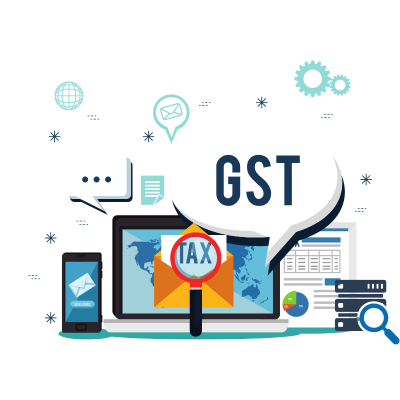In today’s fast-moving business world, staying updated with the right information is key. Especially in the B2B sector, knowing your partners and customers well can make or break deals. One tool that helps businesses gain an edge is a B2B GST database. But what exactly is it, and how can it help your business? Let’s dive in.


In today’s fast-moving business world, staying updated with the right information drives smarter decisions. In the B2B sector, building strong connections with partners and customers depends heavily on reliable data. One powerful tool that gives businesses a strong edge is the B2B GST database. This resource offers valuable insights about registered companies, their GST details, and financial credibility. With the B2B GST database, businesses can improve targeting, reduce risks, and close deals faster—all while staying fully compliant.
What is a B2B GST Database?
A B2B GST database is essentially a collection of records related to transactions between businesses that are subject to GST. It contains data such as GST numbers, invoices, and transaction details. This database allows businesses to manage and track their tax filings, ensuring that they comply with GST regulations.
For businesses that deal primarily in B2B (Business to Business) transactions, maintaining an updated GST database is essential. This helps ensure the correct calculation of GST liabilities and credits, avoiding penalties and streamlining tax filing.
Why is a B2B GST Database Important for Businesses?
Having a B2B GST database is more than just a compliance tool. It offers several benefits that can improve your business’s financial management and tax processes.
1. Seamless Tax Filing
With a properly maintained GST database, you can quickly generate reports for filing GST returns. This reduces the chances of errors and ensures that your tax filings are accurate. An efficient database saves you from the hassle of going through paper records or scattered data.
2. Improved Invoice Management
Invoices are the backbone of any business transaction. For a business to be compliant with GST regulations, every invoice needs to have a GST number and proper details. The GST database helps in keeping track of all your invoices, making it easier to verify and manage them.
3. Real-Time Updates on GST Compliance
A good database keeps your information up-to-date with real-time changes in GST laws. Since GST is constantly evolving, staying informed is crucial. With an effective GST database, you’ll always have access to the latest updates, ensuring that your business remains compliant with the new rules.
4. Efficient Tax Calculation
One of the main advantages of a GST database is that it enables businesses to calculate their tax liabilities and credits automatically. The database can also help in calculating the Input Tax Credit (ITC), which allows businesses to claim credit on the taxes paid for business-related purchases.
5. Avoidance of Errors and Penalties
GST compliance can be tricky. Businesses often face penalties for mistakes like mismatched invoices or incorrect tax filings. A comprehensive GST database reduces the risk of such errors by storing all the information in one place, making it easier to verify and correct any discrepancies before submitting returns.
How GST Data Makes Tax Filing Easier and Smarter
Filing GST returns accurately and on time is a critical part of maintaining good financial health for any business. By using a B2B GST database, businesses can ensure that their filing process is smooth and error-free.
1. Automation of Data Entry
Gone are the days of manually entering transaction details into tax filing systems. A well-maintained B2B GST database automates most of the data entry process. This helps businesses reduce the time spent on filing GST returns while minimizing the risk of human error.
2. Easy Access to Transaction History
A B2B GST database stores all transactions, making it easy to access the information needed to complete your GST returns. With a few clicks, you can retrieve past invoices, payment records, and other relevant details.
3. Integrated with GST Software
Many businesses use GST software to assist with tax filing. A B2B GST database is often integrated with these software tools, allowing businesses to directly transfer their data for processing. This integration makes the entire tax filing process faster and more accurate.
Key Features of an Efficient B2B GST Database
When looking for a Business to Business GST database, it’s essential to focus on its features. An effective database should offer certain functionalities to improve your tax filing and record-keeping processes.
1. Centralized Data Management
All of your business transactions, including invoices, GST details, and tax payments, should be stored in one central location. This makes it easy to access and manage your data, improving organization and efficiency.
2. User-Friendly Interface
A GST database should have an intuitive interface that makes navigation easy, even for users who aren’t tech-savvy. This will ensure that your team can use it effectively without needing additional training.
3. Data Backup and Security
A good GST database should have robust backup systems in place to protect your data. This ensures that your records are safe and can be recovered if there’s ever an issue with your system.
4. Scalability
As your business grows, so does the amount of data you need to manage. Your GST database should be scalable, meaning it can handle increased data volume without compromising on speed or efficiency.
From Savings to Productivity – The Real Value of GST Databases
1. Cost Savings
By reducing manual labour, errors, and penalties, a B2B GST database can save businesses both time and money. The automation features cut down on administrative tasks, allowing businesses to focus on growth and strategy.
2. Enhanced Productivity
With accurate data at your fingertips and fewer manual processes, your team will be able to focus on more critical business tasks. This boost in productivity can contribute to overall business success.
3. Streamlined Audit Process
In the event of an audit, having an organized B2B GST database can simplify the process. Since all your records are digitized and stored in one place, you can easily provide auditors with the necessary documents without any hassle.
Conclusion: Why Your Business Needs a B2B GST Database
The B2B GST database is an invaluable tool for any business looking to simplify its GST filing process, avoid penalties, and improve tax compliance. Whether you’re a small enterprise or a large corporation, maintaining an organized and up-to-date database can save time, money, and resources.
In today’s competitive market, businesses must stay on top of tax regulations, and a B2B GST database is the key to making this process as smooth and efficient as possible. Invest in the right database, and watch your business enjoy the benefits of streamlined operations, better tax management, and enhanced compliance.
